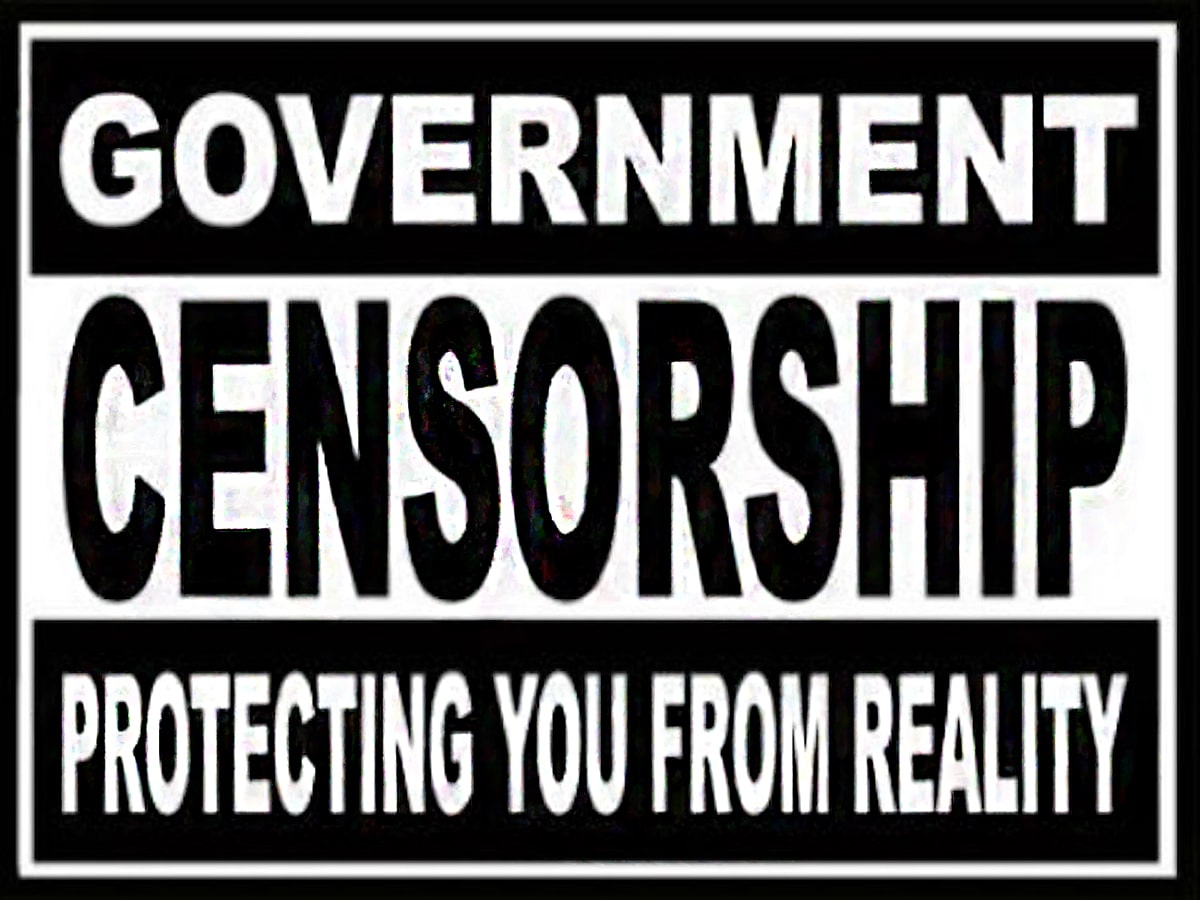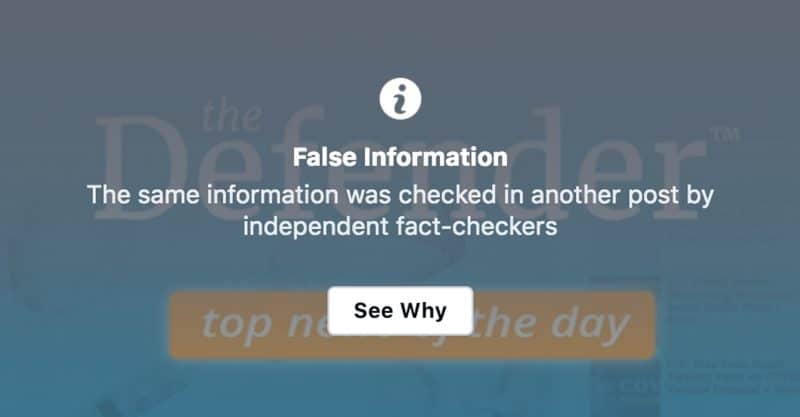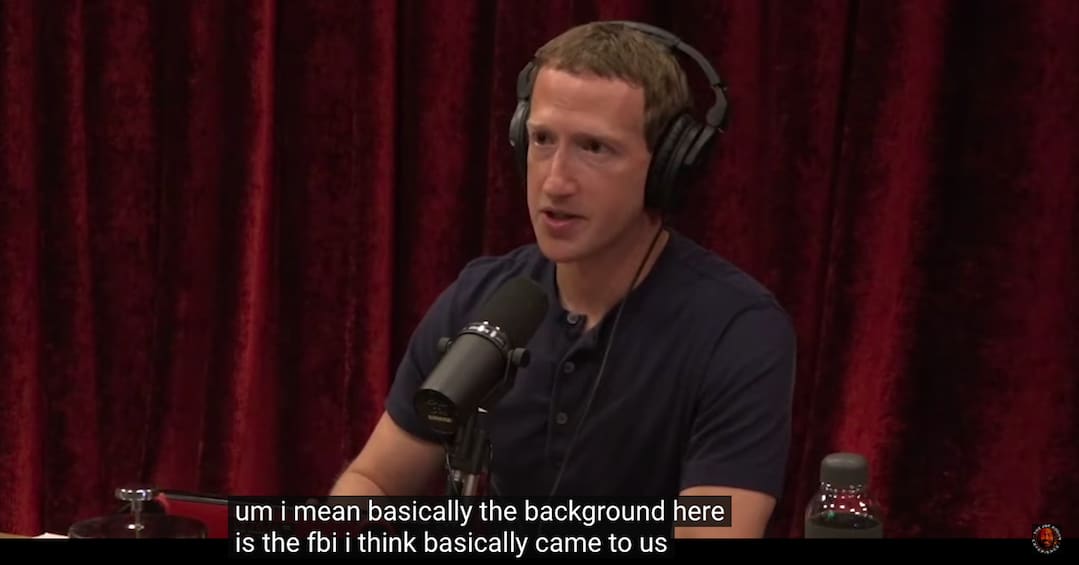

Elon Musk, Mark Zuckerberg, and our Government Censors
by Abigail Shrier Sep 5, 2024
When asked why he robbed banks, legendary fugitive Willie Sutton replied, “That’s where the money is.” Governments coerce social media platforms into censorship for the same simple reason: That’s where the objectionable speech is.
Thanks to a recent Supreme Court case, in America, there’s also little to stop them.
Social media platforms—but not their users—can sue the government to stop the impermissible suppression of speech, according to Murthy v. Missouri, decided in June. The Court held that social media users could not establish a causal link between government pressure and the suppression of their posts because “the platforms had independent incentives to moderate content and often exercised their own judgment.” In an America where platforms’ interest in censoring disfavored views often align with the government’s, who is in a position legally to stop it?
Which is why so many commentators were relieved when Meta CEO Mark Zuckerberg, in a letter to the House Judiciary Committee last week, vowed to “push back” on future government attempts to censor Facebook posts.
Alas, Zuckerberg’s was the Metaverse of promises: uncompelling, phony, and without purchase in the actual world. When he had the chance—repeatedly, over the last eight years—Zuckerberg, like Twitter’s former CEO Jack Dorsey, buckled. Both willingly suppressed speech Democratic officials found objectionable: the Hunter Biden laptop story and skepticism of Covid-19 policies. Dorsey’s Twitter kicked a sitting Republican president off Twitter.
Zuckerberg’s was the Metaverse of promises: uncompelling, phony, and without purchase in the actual world.
Even assuming Zuckerberg has had a sincere change of heart, he is unlikely to follow through. That’s because his legal responsibility is to his shareholders, not to the public and its freedoms. Any platform that sues the administration invites the IRS or FCC or SEC to take a keen interest in its filings.
What are the chances that a President Kamala Harris would forbear and avoid arm-twisting social media companies into censorship? Based on Harris’s record: Not great.
In 2019, well before the January 6 riot that ultimately led to President Trump’s Twitter ban, then–Senator Harris publicly and repeatedly called on Twitter to ban him. On October 1, 2019, in a letter to Dorsey, Senator Harris called Trump’s tweets “blatant threats,” and claimed that other users “have had their accounts suspended for less offensive behavior.” She tweeted at Twitter’s then-CEO Jack Dorsey, pleading with him “to do something about this.”
Apparently surprised by Harris’s casual use of her pulpit to call for Twitter to ban a sitting president, CNN’s Jake Tapper asked Harris in an interview: “How is that not a violation of free speech? The president has the same rights that you have, that I have. How would that not be a slippery slope to ban half the people on Twitter?”
Harris doubled down: “I’ve heard that argument, but here’s the thing, Jake. A corporation—which is what Twitter is—has obligations and in this case, they have terms of use policy. Their terms of use dictate who receives the privilege of speaking on that platform and who does not. And Donald Trump has clearly violated the terms of use, and there should be a consequence for that,” she said [emphasis mine]. “Not to mention the fact that he has used his platform, being the president of the United States, in a way that has been about inciting fear and potentially inciting harm against a witness to what might be a crime against our country and our democracy.”
In case Twitter had somehow failed to notice the directive, then–Senator Harris said: “And I am asking that Twitter does what it has done on previous occasions, which is revoke someone’s privilege because they have not lived up to the advantages of the privilege.”
Two weeks after the Tapper interview, at the Democratic primary debate on October 15, 2019, Harris repeated her call for Twitter to ban President Donald Trump from its platform. Harris claimed that the mass shooter at an El Paso Walmart had been “informed by how Donald Trump uses that platform.” She several times urged Elizabeth Warren, “Join me in saying his Twitter account should be shut down.”
Even Elizabeth Warren seemed appalled. She refused with a simple “No.” She is a law professor, after all.
After that debate, Harris told Tapper flatly: “The bottom line is you can’t say you have one rule for Facebook and another rule for Twitter. The same rule has to apply which is that there has to be a responsibility placed on social media sites to understand their power. They are directly speaking to millions of people without any level of oversight or regulation and that has to stop.” [Emphasis mine.]
Facebook and Twitter “are directly speaking to millions of people without any level of oversight or regulation. And that has to stop.” – Senator Kamala Harris
Did you get that? It’s worth watching: Harris said social media sites should not be able to communicate information directly with the public without government oversight.
MSNBC’s Chris Hayes also confronted Harris over her brash insistence on using her pulpit to pressure a private company to suppress the president’s speech. “There is not a part of you—civically, constitutionally—that is concerned about the precedent of a private company taking a platform away from the president of the United States, or some other elected official?” Hayes asked her.
“Free speech does not condone or protect threats to the safety of other human beings,” Harris replied. “That is what we are talking about, because this can go into some abstract law school debate.”
The Bill of Rights, like an American Express card, comes with “privileges,” in Harris’s book, free speech being one. Its guarantees are trivial and academic as a “law school debate.” Tim Walz, her vice presidential pick, has echoed the same. “There’s no guarantee to free speech on misinformation or hate speech, and especially around our democracy,” Walz recently declared.
The Bill of Rights, like an American Express card, comes with “privileges,” in Harris’s book.
He’s wrong, of course. The Constitution does protect hate speech and sometimes even deliberate falsehood. Luckily for Walz, the Constitution even protects his right to make false claims about the Constitution.
But sometimes the ambit of free speech is determined not by what the Constitution protects in theory, but the strength of a constitutional culture. Sustained pressure by government actors against freedom of speech has already acculturated Americans to the notion that social media companies and government can team up to censor us.
One of the government officials who repeatedly pressured Facebook into censorship was Biden’s then–director of digital strategy, Rob Flaherty.
In March 2021, Flaherty wrote to Facebook on behalf of the Biden administration. He said he wanted to “connect” about the work they might be doing “to combat vaccine hesitancy, but also crack down on vaccine misinformation.” Flaherty expressed curiosity about what might be done to suppress traffic from the New York Post. “I’m curious—NY Post churning out articles every day. . . . What is supposed to happen to that from a Policy perspective. Does that article get a reduction, labels?”
Flaherty wrote, “intellectually my bias is to kick people off” Facebook. And he insisted his “dream” is for Facebook “to play ball” with the administration when it came to content suppression.
Harris apparently decided Flaherty had done a good job. She recently made him her deputy campaign manager.
Asked whether he might share his thoughts about how a Harris administration would interact with social media companies when there is a concern about disinformation, Mr. Flaherty did not respond to a request for comment.
If you want a picture of what pushing back against government pressure looks like—and the perils of standing on principle—consider Elon Musk at Twitter.
In 2022, Elon Musk acquired Twitter (now called X) and released to the public voluminous communications showing the extent of attempts by the Biden-Harris administration and other government entities to suppress speech on the platform that he had just purchased. Musk invited a team of journalists, which I joined, to report on the “Twitter Files.” The files revealed a vast array of federal government and Twitter employee efforts to censor stories deemed disfavorable to the Biden campaign, his election prospects, and President Biden himself.
For Musk’s foray into transparency, he has been repaid with a series of protracted battles with federal regulators that rises to the level of harassment. As Liz Peek wrote in The Hill, for embarrassing the Biden administration with the release of the Twitter Files, Musk has faced eleven lawsuits or regulatory battles involving seven different government agencies.
The viciousness of the investigations being conducted by the Department of Justice, the Federal Aviation Administration, the Federal Trade Commission, the Securities and Exchange Commission, the National Labor Relations Board, the U.S. Attorney for the Southern District of New York and the U.S. Fish and Wildlife Service against a successful American business leader is unprecedented.
More: Musk’s companies have been hit with subsidy cuts (Starlink), and forced recalls (Tesla) on apparently gratuitous grounds.
I asked a partner at a multinational law firm who specializes in advising companies facing government investigation whether social media companies are likely to launch anti-censorship lawsuits and risk infuriating the agencies that regulate them.
His answer: Not a chance.
“I wouldn’t tell one of my clients to kick over that hornet’s nest. If they’re threatening or intimidating you, there’s probably a thousand things they can do to you that are visible and invisible to you,” the lawyer said.
“You always want your clients to be viewed favorably by the government and to be viewed as somebody that the government can count on and is going to cooperate and do the right thing and be a good citizen. If I were advising a client, I would want the government to have crossed a really high threshold before I would consider litigating against them. If I were Facebook, I’d be very circumspect” about pushing back through the courts.
The problem is this: The Supreme Court held that social media users do not have standing to sue the government for coercing social media companies to censor their posts. That leaves social media platforms to police the government’s “jawboning”—that is, using its official speech to impermissibly compel private action.
But what company will take the risk? Even if a platform were willing to sue the government to prevent its being bullied into censorship, the standard for impermissible coercion set by the Supreme Court is high and difficult to meet. Short of explicitly threatening adverse government action, the Court ruled recently, a government official “can share her views freely and criticize particular beliefs in the hopes of persuading others” without running afoul of the First Amendment. If challenged for pressuring social media companies to suppress content, Harris has already shown us what her response would be: safety, misinformation, harm to the public, privilege. We must, in other words, protect the people from their own speech.
Why will social media platforms comply with her? Easy. That’s where the money is.





0 Comments